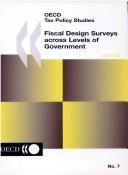| Listing 1 - 3 of 3 |
Sort by
|
Book
ISBN: 9630316021 9789630316026 Year: 1983 Volume: 9 Publisher: Budapest : Ministry of Finance,
Abstract | Keywords | Export | Availability | Bookmark
 Loading...
Loading...Choose an application
- Reference Manager
- EndNote
- RefWorks (Direct export to RefWorks)
Hungary --- Hongrie --- Foreign economic relations --- Commerce --- Relations économiques extérieures --- Taxation --- Fiscal policy --- Small business --- Relations économiques extérieures --- Taxation - Hungary --- Fiscal policy - Hungary --- Small business - Taxation - Hungary
Book
ISBN: 128322416X 9786613224163 9264114602 9264114599 Year: 2011 Publisher: [Paris] : OECD,
Abstract | Keywords | Export | Availability | Bookmark
 Loading...
Loading...Choose an application
- Reference Manager
- EndNote
- RefWorks (Direct export to RefWorks)
The Global Forum on Transparency and Exchange of Information for Tax Purposes is the multilateral framework within which work in the area of tax transparency and exchange of information is carried out by over 90 jurisdictions which participate in the work of the Global Forum on an equal footing. The Global Forum is charged with in-depth monitoring and peer review of the implementation of the standards of transparency and exchange of information for tax purposes. These standards are primarily reflected in the 2002 OECD Model Agreement on Exchange of Information on Tax Matters and its commentary, and in Article 26 of the OECD Model Tax Convention on Income and on Capital and its commentary as updated in 2004, which has been incorporated in the UN Model Tax Convention. The standards provide for international exchange on request of foreseeably relevant information for the administration or enforcement of the domestic tax laws of a requesting party. “Fishing expeditions” are not authorised, but all foreseeably relevant information must be provided, including bank information and information held by fiduciaries, regardless of the existence of a domestic tax interest or the application of a dual criminality standard. All members of the Global Forum, as well as jurisdictions identified by the Global Forum as relevant to its work, are being reviewed. This process is undertaken in two phases. Phase 1 reviews assess the quality of a jurisdiction’s legal and regulatory framework for the exchange of information, while Phase 2 reviews look at the practical implementation of that framework. Some Global Forum members are undergoing combined – Phase 1 plus Phase 2 – reviews. The ultimate goal is to help jurisdictions to effectively implement the international standards of transparency and exchange of information for tax purposes. All review reports are published once approved by the Global Forum and they thus represent agreed Global Forum reports.
Taxation -- Hungary. --- Taxation -- Law and legislation -- Hungary. --- Transparency in government -- Hungary. --- Taxation --- Transparency in government --- Political Science --- Law, Politics & Government --- Public Finance --- Law and legislation --- Government in the sunshine --- Openness in government --- Sunshine, Government in the --- Transparence in government --- Open government (Transparency in government) --- Public administration --- Hungary

ISBN: 1280082801 9786610082803 926419553X 9789264195530 9264195351 Year: 2002 Volume: 7 Publisher: Paris : OECD Publishing,
Abstract | Keywords | Export | Availability | Bookmark
 Loading...
Loading...Choose an application
- Reference Manager
- EndNote
- RefWorks (Direct export to RefWorks)
The relationship between different levels of government is one that is continually under review. Policy-makers ensure the expenditure and revenue functions of each tier of government with a view to balancing efficiency, equity and democratic considerations. Over the last decade, the tendency in a number of countries has been to decentralise both expenditure and revenue functions to lower levels of government. Greater autonomy in raising revenues has been given to intermediate and local levels of government. Setting up of local fiscal systems and intergovernmental financial relations involves multiple and often conflicting economic and political objectives. Practically, it is one of the most complex reform processes in the area of public finance and one that is permanently on the political agenda of both OECD countries and economies in transition. Yet there is no international, comparative set of information available to support this process. The international comparable statistics on revenue of local autonomy and the design of national fiscal control are either lacking or insufficient. This study summarises the overall substantial and methodological framework of a project on fiscal design, which has been carried with the OECD. The results and comparative findings of the OECD Fiscal Design surveys are reported too. The surveys took place in six countries in Central and Eastern Europe: three OECD Member countries, the Czech Republic, Hungary and Poland, and the three Baltic States, Estonia, Latvia and Lithuania.
Taxation -- Czech republic. --- Taxation -- Hungary. --- Taxation -- OECD countries. --- Taxation --- Revenue sharing --- Intergovernmental tax relations --- Political Science --- Public Finance --- Law, Politics & Government --- Federal-provincial tax relations --- Federal-state tax relations --- State-local tax relations --- Tax relations, Intergovernmental --- Tax sharing --- Federal-state program swaps --- State-federal program swaps --- Turnback of federal programs to states --- Duties --- Fee system (Taxation) --- Tax policy --- Tax reform --- Taxation, Incidence of --- Taxes --- Federal government --- Intergovernmental fiscal relations --- Urban policy --- Finance, Public --- Revenue --- Intergovernmental tax relations710 --- Impôt --- Partage fiscal
| Listing 1 - 3 of 3 |
Sort by
|

 Search
Search Feedback
Feedback About UniCat
About UniCat  Help
Help News
News